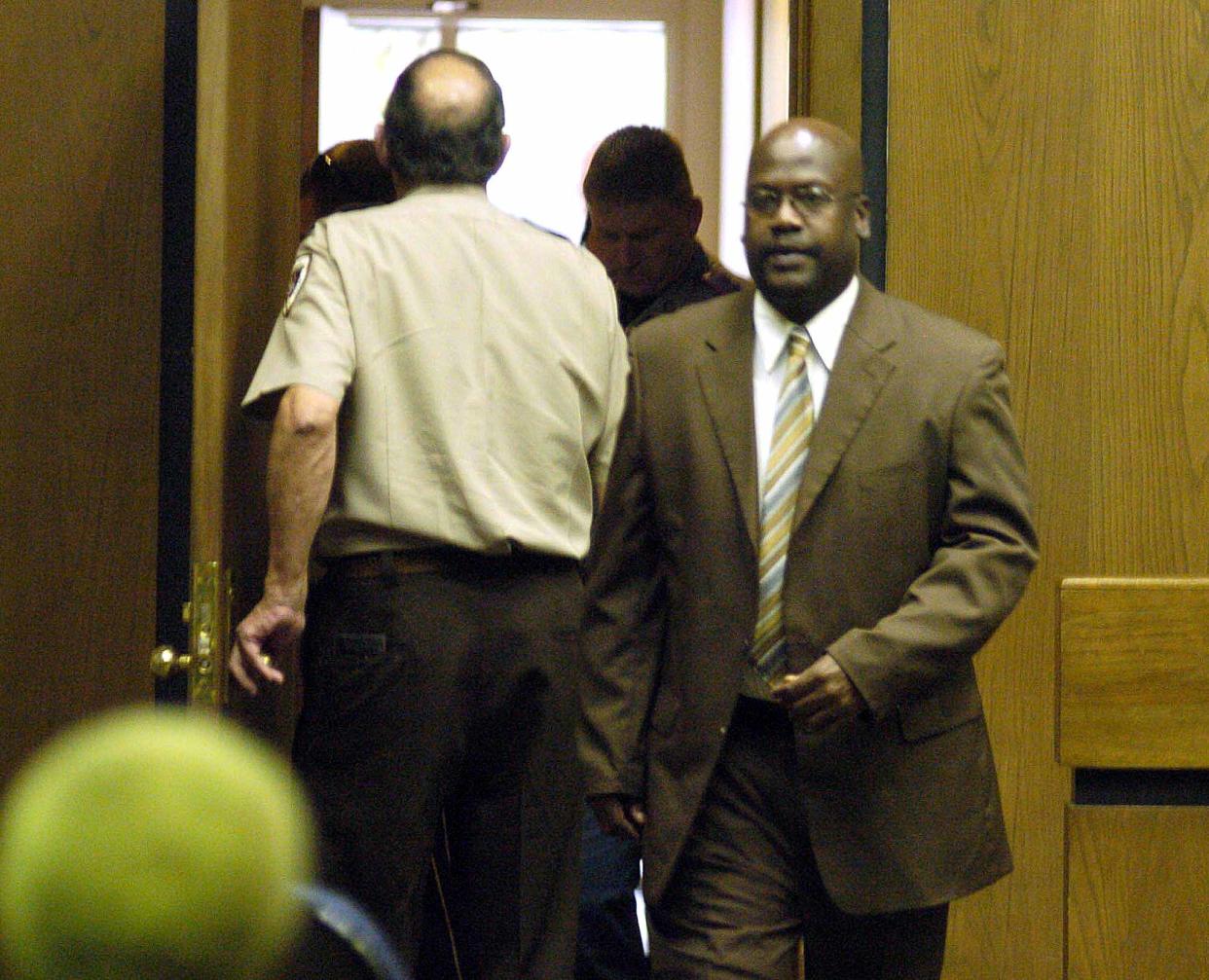Mississippi man accused of quadruple homicide could walk away from jail after six trials

A Mississippi man is scheduled to appear in court Monday for a bond hearing, and if things go his way, he could return home for the first time in more than 20 years.
Curtis Flowers was first accused of committing a quadruple homicide in 1996 — a crime for which he has now been tried six times, a record that is unprecedented in modern U.S. history, legal experts have said.
Earlier this year, the U.S. Supreme Court overturned Flowers' most recent conviction after justices found the prosecutor had been racially discriminatory during the jury selection process.
In September, the 49-year-old Flowers was transferred from Death Row at the Mississippi State Penitentiary, also known as Parchman prison, to a jail to await the next steps in this legal battle.
His case is now being treated as if Flowers had just been indicted on the murders.
Judge Joseph Loper is expected to decide whether to grant Flowers bail Monday.
Attorney Rob McDuff with the Mississippi Center for Justice is fighting to prevent Flowers from being tried a seventh time. The decision whether to bring the case to trial again rests with Fifth Circuit Court District Attorney Doug Evans, who has not publicly commented on his plan.
Evans was recently sued by a local chapter of the NAACP in an effort to keep him from intentionally excluding black citizens from serving on juries – a practice the Mississippi Supreme Court and U.S. Supreme Court have found evidence of in Evans' office.
Court documents filed by McDuff show arguments he plans to make to persuade Loper to allow Flowers to leave jail.
Not only does Flowers deserve bail, McDuff argues in the motion, but bail is mandatory in this case.
McDuff points to a state law that says anyone who's been tried twice for a capital offense, and each trial has resulted in a failure of the jury to agree on the defendant's guilt or innocence, shall be entitled to bail.
Two of Flowers' six trials ended in mistrials. In the other four trials, Flowers was found guilty, only to have his conviction overturned by a higher court because of prosecutorial misconduct.
That means the law applies to Flowers' case and the judge is required to grant bail, McDuff argues.
Also, McDuff argues that Flowers does not pose a danger to the community and he won't try to flee if bonded out.
Flowers had no criminal record before his arrest. He cooperated with law enforcement through the investigation and did not try to hide from police, continuing to perform in public with his gospel group after allegations against him were made public, the motion states.
Retired prison staff who knew Flowers provided sworn statements, which are attached to the motion. They say he is a peaceful and religious man who is well liked by other inmates and guards.
Nathan Harris, who was a lieutenant at Parchman until his retirement in 2017, described Flowers as a "positive role model for other prisoners."
"If other inmates were giving me trouble, Curtis would tell them to listen to me and the other correctional officers. Curtis would tell them that I was just doing my job. Curtis would do anything to help people," Harris said.
If bail is granted, there's a possibility Flowers will walk out of the courtroom without handcuffs.
Flowers would live with his family in Winona, court documents indicate. His 77-year-old father and his brother, sister, daughter and granddaughter live in the area.
Loper could choose to place Flowers on GPS monitoring and order other conditions for bail.
If the motion is denied, Flowers would return to the Winston-Choctaw County Regional Correctional Facility as an inmate.
Tardy Furniture murders
On the morning of July 16, 1996, the Tardy Furniture's owner and three employees were found lying in pools of blood. Each had been shot in the head, and nearly $400 was missing from the cash drawer.
The victims were Bertha Tardy, 59, Carmen Rigby, 45, Roberty Golden, 42, and 16-year-old Derrick Stewart, who was known as "Bobo." All were dead at the scene, except for Derrick, who fought for his life for several days until he succumbed to his injuries.
The evidence investigators gathered at the scene included a bloody footprint and bullets.
Police arrested Flowers, who had worked at the store for a short time before being fired, several months later. He was indicted on four counts of capital murder.
Prosecutors have portrayed Flowers as a disgruntled employee who was out for revenge.
Contact Alissa Zhu at azhu@gannett.com. Follow @AlissaZhu on Twitter.
This article originally appeared on Mississippi Clarion Ledger: Mississippi man accused of quadruple homicide set for bail hearing

